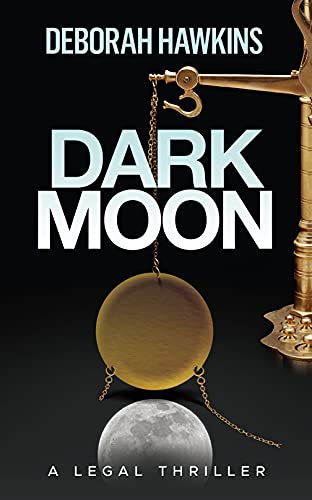Last week we announced that Nathaniel Burns’ Storm of Love is our Romance of the Week and the sponsor of thousands of great bargains in the Romance category: over 200 free titles, over 600 quality 99-centers, and thousands more that you can read for free through the Kindle Lending Library if you have Amazon Prime!
Now we’re back to offer our weekly free Romance excerpt, and if you aren’t among those who have downloaded Storm of Love, you’re in for a real treat:
Massachusetts, 1776
Young Abigail suffers greatly the way she is being raised by her mother, for whom a woman’s only place is in the kitchen. At the same time, her father’s dedicated fight for freedom also ignites in her a passion for the American Revolution. When news of her father’s death reaches her, she has a falling out with her mother. Soon after, Abigail goes on her way to fight for freedom and independence like her father had done.
On the way, she encounters the young English deserted Edward, who has come to the realization that he went to war for the wrong ideals and who also wants to join the revolutionary army.
Soon, the two discover their true feelings for each other and in the turmoil of the American Revolutionary War begins for them a time of uncertainty, of hope and of terror.
Is the burning torch of their love strong enough to withstand the storm?
* * *
Free and Bargain Quality eBooks delivered straight to your email everyday – Subscribe now http://www.bookgorilla.com/kcc
* * *
And here, for your reading pleasure, is our free romance excerpt:
1 Abigail
ABIGAIL SAT PATIENTLY at her window, tending to the day’s sewing. Backstitch at the moment. What a pitiful stitch. Forward then back, forward then back, no progression, nothing changing, but then somehow a line is drawn. Pitiful, indeed; circular and inefficient at best, yet somehow resulting in a finished line of which one could almost be proud. Never too proud, of course—that would not befit a lady.
The current climate was much the same as a backstitch, really. Some idea of forward motion, some direction, some half-conjectured finished state of things, but always looping back to the former point before making any headway. The rebels, as they were called by the British—patriots, of course, to the rest of the colonists, for whom the idea of freedom resonated as necessary—were barely recognizable as an actual army.
The troops needed a leader. Abigail knew, of course, that she couldn’t be public about her musings. To anyone passing by her quaint home, glancing in her window, she was simply a well-mannered woman, tending to the day’s chores, fixing her mother’s dress, knitting her father’s socks. But to God and herself, she was for all intents and purposes a rebel as much as any man ill-suited and poorly armed awaiting a leader. Just one good man to lead the troops and I would join, thought Abigail, rebelling without a word. But who really cared about rebelling? Was not every patriot a rebel, anyway? Hadn’t everything proper been thoroughly done away with the second the Massachusetts militia dared to stand up to the British army? One shot. One shot and the entire whole of society as it was known was changed irrevocably. For better or for worse, nobody could yet know, but revolution was underway, and Abigail had better intentions than to sit and sew through it.
“Abigail!” The sharp voice cut through her thoughts.
Internally sighing but outwardly giving the charmed smile of a colonial woman, Abigail lifted her eyes from her sewing and addressed her mother, the source of the voice that had no doubt used her own name to warn her that more chores were coming.
“Yes, Mother?”
“When you’re done there, the laundry needs tending.”
“Yes, Mother.” She smiled sweetly at her mother, who returned the expression, neither of them any the more sincere for having offered it.
Tensions had risen in the household ever since Abigail’s father, Joseph Warren, had gone off to fight for the patriot cause. Of course, there had really only been one battle at the time, when the shot that changed the entire course of life as she had previously known it was fired over at Lexington Green. It had only been eleven days since that fateful firing, and the day after it had occurred Mr. Warren had decided to join the patriot cause, but not with the whole militia—rather, with a few militiamen her father’s friend Ethan had thrown together, and rather unceremoniously at that.
Of course, Abigail’s mother had been less than enthused at this gesture. It wasn’t so much that her husband was fighting for the patriot cause, no; it was that he wasn’t with the patriots. He had decided to take off with Ethan Allen to join what Allen called The Green Mountain Boys.
Abigail personally felt that her father was much more patriotic by joining a group that actually did something instead of one that ran to the front lines only when called on to do so. Colonial militia was a façade, and everyone knew it. Half of them only came to roll call when they were asked to, and the other half eventually went back to their farm work as though the illusion of countryside life would save them from what was to come.
The Boys were planning something. Abigail was keen enough to piece it together, but her mother, Fable, had not yet done so. Fable was mortified that Joseph had joined this “foolish rebellion,” meaning The Boys, instead of joining the “noble cause,” meaning the patriots. As if the patriots were being any less rebellious.
Joseph and Abigail had always gotten along quite well, as Abigail shared her father’s sense of adventure and meaning and he had always supported her less-than-demure attitude, at times displayed toward the British. “You, my dear, were a rebel before there was such a thing and before it was entirely proper to be one, even for a gent,” he said to her with a wink. While her mother was out tending the gardens and horses, her father would engage in conversation with Abigail about the British. Even before it was acceptable to speak out against the Crown, he did, and even before it was altogether mused about in the town square, Abigail and her father were discussing revolution. Just ideas, of course, foolish ideas. But now who would call them foolish?
Abigail knotted the final stitch in the scarf she was hemming for her mother. The seemingly pointless circular masquerade of the backstitch had finally reached its end, and there was nothing further she could do to delay her duties in the washroom.
Smoothing her apron with her hands and doing the same to her cotton dress as she stood, she gracefully and predictably walked into the washroom to begin the laundry. A curious thing that laundry is so demeaned as a woman’s chore but so altogether necessary for the carrying on of suitable and civilized life. Word had reached some of the neighbors that there were patriots on the battlefield, or whatever there was of one at the moment, who had opted not to wash their clothes, preferring, apparently, that the clothes mold to the patriots’ own flesh and rot before stooping to the level of a chore so feminine as washing clothing. A curious thing, indeed, that such an essential task be forfeited purely for fear of being seen as on the level of a woman, clearly a handicap at best.
Abigail let a rare smirk cross her face as she picked up the washboard and began to fill the wash bucket with water. As she washed her father’s shirt, she secretly wished that she was out on the battlefield with him. What could he and Ethan be planning? Would he tell even her when he came home this evening? All she could get him to divulge this morning before he set off on his mystery trip was that he and The Boys were discussing a venture with one Mr. John Franks.
While doing her chores in the washroom, Abigail mused about the adventures her father was having and allowed her imagination to fabricate heroic deeds and victorious battles against the British. Her father could easily lead the patriots. After all, he was a doctor by trade, and that had to be good for something when placing oneself in eminent danger for a cause. Her father had spoken of nothing but revolution since the incident at Lexington Green, and Abigail took him seriously, which was a far greater act of charity than her own mother could muster.
Abigail very swiftly discovered how her mother felt about the idea of revolution—and particularly about her daughter speaking of it—the very first time she had dared utter a word about it. “Do you think there will be a revolution, mother?” she had asked with real curiosity before the Lexington event had even occurred.
Her mother, a reasonably formidable woman standing at five feet eight inches with severe features and a rather pointed face, had spun around so quickly her dress had barely enough time to settle before Abigail felt the blow across the left side of her face. “Don’t you dare speak of that again in this house, do you understand me? And don’t you speak of it anywhere else, either. Heavens, Abigail, are you trying to bring reproach upon us all or are you merely so simple that you don’t understand your place? You are a woman, and your only concern is the household and children if by the grace of God you find a man who is willing to fend with you for the remainder of his days.”
Since then, Abigail knew better than to discuss it further, and had she any reason to assume it was a good idea, her cheekbone, which throbbed incessantly for nearly a week, reminded her not to. Her father had been furious that she had been struck, and this gave her some ounce of pleasure. The irony was amusing, anyway. She had been struck for expressing ideas unbecoming of a woman, and her father’s argument against her mother was that she herself had been anything but ladylike to strike a child with that amount of force.
This argument between her father and mother had taken place while she was preparing dinner and acting as though she were not present in the room, but because it gave her a beneficial position from which to hear her mother be thoroughly reprimanded by the head of the household, she did not bring it up. Of course, part of her wanted to protest her father’s description of her as a child, but he was making her point, so she let it be.
The argument ended as abruptly as it had begun, and of course her father had the last word and her mother curtly apologized, barely veiling the contempt in her voice and altogether abandoning any attempt to conceal the sheer hatred in her eyes.
The sound of the door opening brought Abigail once more into the present, although this time she was much happier to be brought back. Her father was home! She swiftly finished the last of the laundry, ran to the door as quickly as was acceptable for a woman, and gave him a hug. At least that was still acceptable.
“Father!” she beamed at him.
“My princess,” he smiled down at her. “How was your day?”
“Just fine, thank you. What did you and The Boys do?”
Her father glanced up and back at her so quickly it was barely noticeable, and his expression became stern, though she did not believe it to be sincere.
“That is not for you to know, young lady.”
It was obvious that her mother must be standing behind her, and, indeed, shrill confirmation came in the form of her mother’s voice, as she thinly veiled the disdain she had long held for her daughter. Joseph greeted his wife, and once she had turned around to fetch supper from the kitchen, he glanced down at her with a wink. Abigail would hear the whole story later, she knew, once her mother went to bed, which she did, blessedly, nearly two hours before the rest of the family.
After supper, her mother went quietly to bed, taking her candle with her, and when they both felt it was safe, her father began to tell her about the events of his day. Abigail looked up from her sewing, a nearly impossible task by candlelight, and excitedly but quietly rushed over to his desk when he gave her a subtle nod and a half-smile.
“So? What did you do today?” she asked excitedly.
“We talked,” he said, his eyes glittering with humor, purposefully making her beg for information, adding to the suspense.
“About…?” she said plainly, as though she didn’t know what he was doing.
“Well, since you persist so,” he winked, “I’ll tell you.”
Instantly, Abigail was chin in palms, waiting for the story her father was about to tell, knowing before he had even begun that it would be a good story. It always was. And this time, with a revolution that had already begun to take root, it was bound to be even better than usual.
“Ethan and the rest want to go to Ticonderoga.” He said it as though he were telling her they were going to the market.
“Ticonde—” Abigail’s hand flew over her own mouth as she realized the volume at which she had spoken her words. In a more hushed tone she continued on. “Ticonderoga? That’s…that’s in New York!”
“I know, it’s quite a ways, but we’re sure we can take it.”
This time Abigail really was confused.
“Take what?”
Her father laughed under his breath. “The fort, child, the fort!”
“Fort Ticonderoga? You mean to tell me that you and Ethan and Mr. Franks are all going to waltz into Fort Ticonderoga and take it?”
Joseph feigned an expression of careful consideration and then glanced at his daughter and said, quite casually, “I suppose so, yes.”
The candles were flickering in the wooden room and her father’s eyes looked even more excited and sparkling in the dancing candlelight. She ran her hand lightly across the wooden table where they sat, eventually dropping it slowly to the bench beside her, following her hand with her eyes along the way. Finally, she looked up at her father to see if his expression indicated that he was joking. He was not.
A smile broke out across Abigail’s face. Patriot leader, indeed, though her mother had placed her head so firmly into the heavens and into her housework that she hadn’t had the faculties left to understand. She reached over and embraced her father as they tried to be quiet in their celebration.
“Do you think there’s a good chance at it?” she asked.
“Actually, yes. They won’t be expecting it. With all the fuss in Lexington and Concord over the happenings there, New York isn’t even on the map for most of the British. But Ticonderoga is essential. We have to take it.”
“You will,” she responded without hesitation, still beaming from ear to ear with excitement. “When is it happening?”
“Soon. We’re drawing up the plans, and that’s where I’ll be for the next week or two. We have to ensure that not one mistake is made, or it could cost us everything. But Franks knows well how to plan for this sort of thing. It seems reasonable to assume that he is our best bet at taking Ticonderoga.”
“Of course he is valuable for the task,” concurred Abigail. She had met Benedict Franks just once before, and while privately she held a slight distrust of the man, for reasons she could not describe or place she felt him to be generally good and certainly qualified to lead her father, Ethan, and the rest of The Boys on a successful mission to Ticonderoga.
Silence fell between father and daughter for a moment, and she thought briefly of what her mother would think when she found out. Then, not wanting to spoil the happiness of the moment, she forced herself to think of other things. Her father was about to be a hero in no small sense, a true patriot fighting for the cause of freedom, regardless of what anyone else thought.
“This is revolution, Abby,” her father said, suddenly a bit more solemn.
“I know,” she whispered back quickly, still smiling. “It’s good that we have revolution. It’s good that we’ll show England who we are.”
“This is true,” he responded quietly, with a half-smile reappearing, “but things are bound to take a turn for the worse before they result in anything good and noble. Revolution is not a glamorous thing, child, and it’s not a storybook pre-written by fate. We’re fighting against England. We’re writing our own history, here. We’re making up the rules. No law, no covenant, no decree, no set of instructions, no rules of engagement exist for the thing we are about to do. We can only pray that it goes as we hope it to. We must succeed. I would rather die fighting for a successful revolution against England than live to see the condition in which we would all exist if we failed.”
Her smile had faded slowly upon hearing these solemn words from her father, but she knew he was right. This was not going to be easy. But it was the right thing to do, and her father had always upheld the cause of good before worrying about what would happen to him for doing so. She reached out and touched her father’s hand, and his downcast eyes once more met hers. They exchanged a smile.
“All noble things require sacrifice, isn’t that what you always told me?” Abigail swallowed hard so that the tears forming in her eyes would not show.
“Indeed, child,” her father said with a nod and a smile, his attempts to hide his own emotion, if there were any, failing as his eyes ever so subtly glistened with a tear. “Indeed. Revolution is coming, but for now, it is a late hour and we both must get some sleep.”
With that, they both left for their separate rooms. Abigail picked up her candle and felt her bare feet on the wooden ground. She crossed the small house to her bedroom, set her candle on the nightstand, and changed into her bedclothes. Quietly, she slipped under the cotton covers, entertaining thoughts of revolution as the dwindling candlelight flickered and soothed her to sleep.
2 Loomings
SHE AWOKE TO THE SOUND of her father’s heavy footsteps along the wooden floorboards in the hallway. Shortly after the footsteps paused, she heard the unmistakable sound of his gun and satchel as he picked them up from the pine table in the kitchen. In her mind, she could almost trace his path through the house based on the noises she heard him make.
The sun had not yet reached through the curtains to wake her, so she knew it was her father’s milling about that had caused her to stir from the sleep she had previously been enjoying. He was getting ready to leave, and by the sounds of it he would not be back for a long while. She waited a moment longer, almost holding her breath, to see if her mother was awake yet. She had only yet heard one person’s clamor and decided it would not be unsafe to slip from her room out to the kitchen to give her father a parting good-bye.
Almost without disturbing the arrangement of her covers, she slipped out of bed and, with equal stealth, exited her room and made her way down the hall. As she entered the kitchen, where her father still stood packing food for—by the looks of things—three weeks, she stayed silent and waited for him to turn and notice her presence. When he did, he seemed startled to see her but then immediately smiled as though relieved it was only she who had interrupted his morning routine.
The kitchen was small but it was enough. The walls were made of brick that had been painted white, though by now it was beige and covered with dust and charcoal where the fire pit was. On the wall opposite the entrance was an arched brick oven with a fire pit inside. A cast iron, three-legged pot stood on the floor inside the brick portion behind a little wall-like ledge of the same kind of brick. Father had built up the ledge so that the hot coals would be less of a hazard to the wooden floor. When she was a small child, Abigail would march her index and middle fingers along the top, like a soldier, her mother thinking it was simply play. She supposed, now that she thought back on it, that her mother likely thought she was pretending her walking hand was a proper woman strolling down to the market, or perhaps a child skipping down the street. That’s the thing about imagination. Nobody has to know what you really think or what your actions truly mean.
The ledge kept the charcoal and ash nearly completely out of the kitchen, and the arched frame above the oven was well designed, too, keeping the majority of the smoke within its confines and guiding it effortlessly out through the chimney. The top of the brick oven did not reach the ceiling, not nearly. Above the masonry oven was a wooden ledge, another of her father’s creations, which ran along the front of the oven and then along the right side, where the oven portion of the wall extended further into the room than the rest of it, and ended at the wall.
On top of this ledge was where her mother kept her main cooking tools. Pots and pans hung from the right corner, and various herbs hung from the ceiling, drying on specially made hooks. Along the left wall, wooden shelves were affixed to the cold brick, holding bread and vegetables, and a bag of potatoes hung where the stove met the wall.
On the far wall to the right of the stove there was a small window that looked out over the gardens, and the right wall also had a window, though smaller and much higher up. The only person who could view the front of the house through this window was Father. He was only five feet eleven inches tall, but Abigail and her mother were both five feet three inches and had no occasion to look through that particular window, anyway.
The floor was uninterrupted wood throughout the entire house. There were, of course, planks that made up the length and breadth of the floor, but it seemed as though rooms had been built upon one large floor base separated only by walls, instead of each room having a floor of its own. Her father was currently standing by the wooden table in the center of the room. Underneath the table and all around it were baskets of fresh fruits and vegetables her mother had picked just the day before from the garden, and three loaves of bread were on the table, wrapped in linen for her father. He had taken an entire basket of potatoes, though they still had three remaining, and his pack was so full she could not form a guess as to how he would carry it out the front door, let alone the many miles to Concord.
She had woken early on several past occasions to see her father off as he headed to work, but this time would be much different. There was no telling how long he would be gone. Though he was only packing three weeks’ worth of food, she knew it could be far longer before he returned, and that it likely would be. They stood there, looking at each other, without saying a word. No words were necessary. She was standing in the doorframe, although “doorframe” was a misnomer, since no door existed between the hallway in which she stood, the front room on her right, and the kitchen on her left. In front of her, if she stood so that she was directly in line with the hall, was the front door of their home. Soon, her father would be walking through that door, and she had no reasonable guess as to when that might be.
“Did I wake you?” her father asked, finally breaking the silence but still speaking in hushed tones.
She shook her head.
“No,” she smiled, rather dishonestly, but it was a harmless lie. “I was awake and heard you packing your things so I came out to bid you goodbye.”
“I am glad that you did.”
They were both smiling, but neither believed the other’s expression to be sincere. Rather, there was no point in being as transparent as they usually would in a situation such as this. Smiles may be the only thing they would have of each other for a long while, so there was no sense in spoiling the moment too soon with the inevitable tears that accompany such occasions.
“Are you headed to Concord?” she asked, knowing the answer already in her heart.
He nodded his reply. Both of their faces abandoned the false smiles they had held so far, and solemnly they both allowed their gazes to fall as they privately pondered the events to come.
They lingered there in silence a moment longer, and she watched him turn the same potato over a hundred times it seemed, idle hands engaging in repetitive motion so that there was something, anything, to break the silence and delay the time between now and the moment that would arrive too soon.
Finally, Abigail could no longer stand it, and she disregarded her role as a composed and proper woman, ran across the room, and embraced her father so tightly that air audibly escaped from his lungs. He chuckled slightly, but the moment was no less heart-wrenching. Tears poured down her cheeks and over her lips as she sobbed openly, willing her father to stay but knowing he had to go.
Taking both of her shoulders gently, her father held her out in front of him as though he were looking at a piece of art, examining her, in a way. His eyes were narrow and sincere, and it was as though he were trying to remember the smallest details of her appearance. Lightly, he wiped a tear away from her eye and straightened his posture, tucking a piece of her brunette hair behind her ear.
“You are a strong woman, Abigail, and whatever others may think of it, I admire that about you. Don’t ever allow yourself to bow to the ignorant slander of those who think your strength unbecoming of a woman. You were made by God to be strong, and to bow to the will of those who would confine your existence to a preconceived box would be a sin. One day, you will have the chance to show the world how strong you are, and I pray you will take it.”
He swallowed hard, trying to keep the tears from his own eyes as Abigail abandoned any attempt to keep herself composed and together. She didn’t even give a thought to what would happen if her mother awoke to find her in such disarray. All she knew was that she did not want her father to leave. Neither of them would dare to speak the thoughts in their minds, but in a way they both felt that it would be a miracle should they ever see each other again.
She heard Mother stirring in the back room, no doubt getting ready to awaken and see Father off. He and Abigail embraced one last time before she left for her bedroom to pretend that she had not yet woke. It would have been improper in her mother’s eyes for her to be making such a scene. Emotions were to be kept in check, if they must be had at all, and anything other than calm, cool, even detached composure was not acceptable in Mother’s sight.
Father and Abigail had always agreed in their disagreement with Mother on the matter, but that did not stop them from fearing her wrath. Father understood that while Abigail would have lingered by the doorframe until he was long out of sight and the sun had broken the surface of the horizon if she had had things her way, it was best for both of them if she retreated. Of course he understood. Father always understood her.
Her bare feet silently stepped across the floor and into her bed where she slid beneath her white cotton sheets, waiting for the sun to peek through the window and inform her, without a word, that her appearance was acceptable. It was always at dawn that her work began, though her mother began hers far earlier. If she had thought for a moment that she would obtain any more sleep between the hour that she retreated into her bedroom and the hour she was allowed to reappear for her day’s chores, she was mistaken.
Murmurs reached her ears through the wall behind her as she lay on her right side. Her head was facing the right side of their home, if the front door was considered the front, and the kitchen was located immediately to the right upon entering the residence. Then, to the left, was a large open room separated only by one wooden step. The upper level, close to the front window, was the front room and sewing area, and the far side was the den and dining area all mixed into one. Her father’s armchair sat in the corner by the fire, and the long wooden table with affixed bench-like seats where she and her father had discussed revolution just the night before was placed almost to the wall.
To the right were the kitchen and her bedroom, and across from her bedroom was her mother and father’s bedroom. As she lay staring toward the back of the house, she wished she had a doorway she could simply walk through. She would escape past the farm, past the crops, and take off into the forest to the back of the home. Revolution would be hers as much as her father’s, and she would not have to contend with simple, lady-like chores while their country’s future was forged by the men.
Instead, she stared at a wall with only a high window and a desk. Her desk was wooden, much like the wood that made up most of the house but a bit lighter and not as rough. It was of simple construction, but it was the only place in the world she felt she had to herself. Studying was forbidden, of course, as education was of no use to women, according to her mother and most others. But she would still sit at her desk and write. She made sure to hide her writings well in a compartment beneath her desk. Nobody knew the compartment was there except for her, so when she found it she began to store things there that were her own. One day, she promised herself, she would take those things that were hers and hers alone and escape her life of drudgery.
Upon her desk sat the only thing she was allowed to display save for the brisk decor of the room or flowers from the garden, and the only thing she now had of her father. He had once used a compass to hike in the mountains and came back with a handsome kill. We ate for almost the entire winter from that single hunting trip. Her father recounted to her in one of their conversations, which stretched almost until dawn, about how he and his hunting partners had almost become lost in the woods. When she asked him how he found his way home, he said his heart and his compass led him there. He then gave Abigail his compass and told her that he had another one, but that if she ever became lost, she could use her heart and his compass to lead herself to safety and home.
The front door of the house creaked open and she could hear the curt, short tone of her mother’s voice and the calming response of her father as they exchanged final goodbyes. Part of her was jealous of her mother for having the last goodbye, particularly because it was so undeserved. Her mother was responsible for so much of the tension in the household, and yet she stood there like the dutiful wife bidding her husband goodbye while she no more cared about the revolution than she did about Abigail, at least after her chores were complete.
With three heavy boot steps her father was beyond the reaches of the home and headed off toward danger, revolution, freedom, and bravery. Abigail knew her mother would never understand. She knew she would always resent the both of them for their wild ambitions and that somehow any ill that might befall her father would be swiftly blamed on Abigail. In that moment, she resolved to ignore whatever her mother said, knowing somehow that she would not be kept in that house much longer. Revolution called Abigail, too, and when her time came, she would fight.














